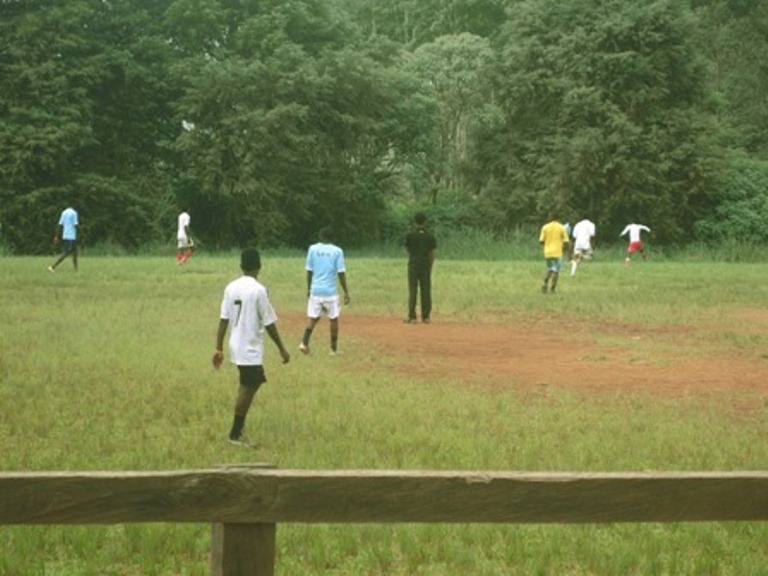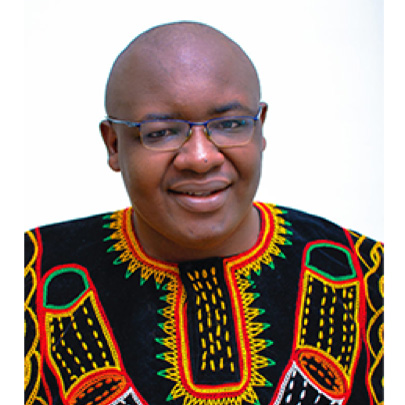"The untapped resource of African football"
September 3 Disappointed with Africa’s results in World Cup 2014, Alphonse Akouyu, 20, a Commonwealth Correspondent from Bamenda in Cameroon, suggests tapping the continent’s wealth of street football players to train the sport stars and managers of the future.
Disappointed with Africa’s results in World Cup 2014, Alphonse Akouyu, 20, a Commonwealth Correspondent from Bamenda in Cameroon, suggests tapping the continent’s wealth of street football players to train the sport stars and managers of the future.
The dismal performance of some African teams at World Cup 2014 has made football stakeholders begin pondering about developing new talent capable of displaying real patriotism, and whether one free source so close but yet so far is street football.
Street football to most people is a normal football game played by primary school children during break, in the playgrounds, be it as form of sports or as a mere relaxation exercise. In rural and urban settings, children play in the stony and dirty areas of the quarters, or on unbalanced and dangerous pitches – if you can call them that. Perhaps where two or three are gathered, poles are erected and a round inflated object is responsible for movement, all that matters is that the game is played.
In its many dimensions, street football serves as a link between the five development stages of the footballer. That is, those who have been able to grace the well adorned football pitches; those who want to do it; those who think they can do it; those who dream of it; and those with no opportunity to do it. Most successful footballers would tell you they started their careers on the streets before being where they are today.
Street football is the first way talents make their intentions known in the game, before the academies come knocking. With so much prospect but few opportunities to showcase their talent, it is but normal to ask the question: what can be done to promote street football in Africa and the world as a whole?
Talk to football experts in other countries about the reasons for their success and this issue of ‘grass root development’ is mentioned. These countries started this process long ago when they noticed that their football was on a decline. The first place they went was these informal leagues or the streets where they got their prospects and raised them up so that it became a chain, whereby the informal leagues or street football became the supplier of talent to the academies.
Accompanying all these aspects of soccer development is this very aspect of education, which is becoming more and more important in this particular period. It is normal to hear of players becoming coaches, and players having degrees in engineering, law, or business. This helps them after their careers when they become match commentators, consultants, or agents. Grass root development must combine football, book work, and to a certain extent morals in the formation of these youngsters.
At present the situation is not all bad as there some laudable efforts, notably school games no matter the level, as these help talents to compete amongst themselves, see their strengths and weaknesses and improve on both sides. It has to start from the rural areas to urban areas and flow continuously. If such a system is implemented and motivated to work then fans would surely have a lot to choose from.
The next step is the scouting system. This sector is not doing so badly as there exist so many players, but more has to be done with regard to penetrating the rural areas. More often than not the scouts end up only in the big cities, even though reserves of football resource exist in the rural areas.
Embodying all these crucial aspects of modern football development is government policy towards football development. It is important for governments to design policies which encourage the growth of soccer, which has proven beyond reasonable doubt to be the number one sport in Africa. Only then can the continent eliminate the disgrace displayed by some teams representing her in international tournaments. That would be erased by future glory as the continent will now be consuming what it is producing. Only then can street football, transformed by the above processes, be termed as the tapped resource of African football.
Photo credit: Alphonse Akouyu
…………………………………………………………………………………………………
About me:
Hello everyone this is your friend Akouyu Alphonse from Bamenda located in the North West Region of Cameroon. I’m currently in my last year in the Catholic University of Cameroon Bamenda studying Banking and Finance. I will be completing my studies in June of 2014 with the hope of becoming a Business/International Relations expert.
My areas of interest are serving as Journalist especially on Sports (football) and societal issues aimed at inspiring people to believe in themselves and volunteerism.
…………………………………………………………………………………………………
Opinions expressed in this article are those of the author and do not necessarily represent the views of the Commonwealth Youth Programme. Articles are published in a spirit of dialogue, respect and understanding. If you disagree, why not submit a response?
To learn more about becoming a Commonwealth Correspondent please visit:
http://www.yourcommonwealth.org/submit-articles/commonwealthcorrespondents/
…………………………………………………………………………………………………






